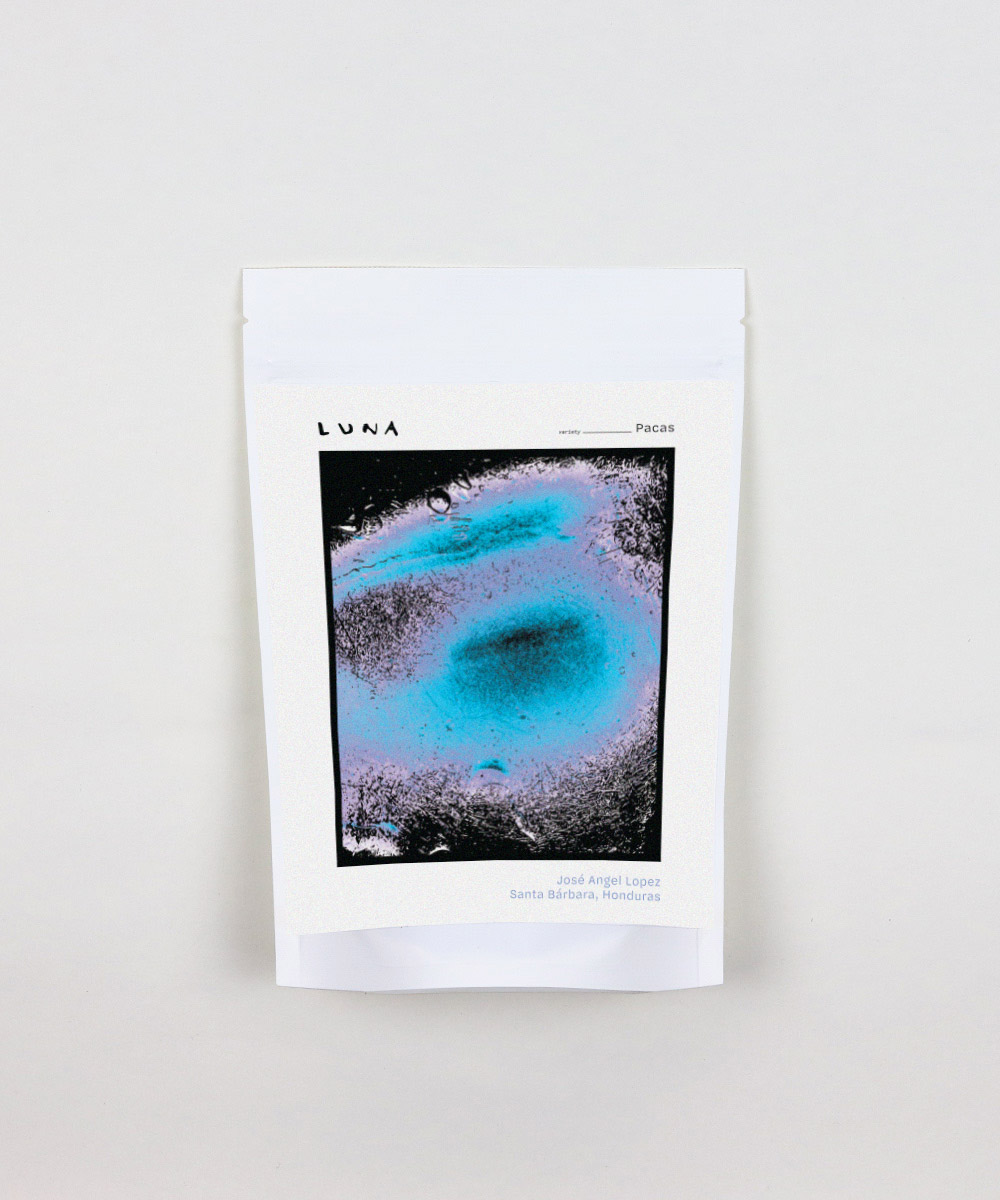José Angel Lopez ~ Pacas from Santa Bárbara, Honduras (2023)
US$0.00
Producer: José Angel Lopez
Place: Santa Bárbara, Honduras
Variety: Pacas
Processing: Washed
Exporter: Beneficio San Vicente
Harvest: April 2023
Tasting notes: pear, strawberry, praline
Sourced from friends, this Pacas lot was picked and processed by José Angel Lopez on his farm in Santa Bárbara, Honduras. Fermented as a traditional washed process using concrete tanks for 24hrs before being washed and dried. Roasted for filter. Fruity and comforting.
Producer
Before having his own farm, José worked as a picker with the notable Moreno family in Los Andes, Santa Bárbara. In his first year with coffee to sell (1 bag of Pacas), José didn’t have any wet milling equipment or drying tables yet, so he borrowed from neighbours to get his coffee ready for delivery to the dry mill. That reliance on your community to get to the next step is critical, and something we can totally relate to. Once we received that first lot, Laura reached out to Benjamin to see if we could buy a depulper for José as thanks for the lovely coffee but also thinking ahead to next year’s harvest. With one hurdle out of the way perhaps José could find a spot on his property to process his lots. Benjamin actually happened to have a depulper hanging around on his farm that he wasn’t using, so the next time José was at the dry mill, the de-pulper was gifted to him.
Fast forward to today, four years later, José’s systems have fully come together with the completion of a fermentation tank and a solar dryer. He still needs one more dryer to accommodate the full (growing) harvest but if this year’s coffee is any indication, he’s well on his way to an established farm producing exceptional Pacas.
Variety
José Angel Lopez is farming Pacas (and a touch of Parainema, and a bit of Gesha that we were able to bring in) on a cool 1 hectare in the Piedras Amarillas area of Santa Bárbara. That signature Santa Bárbara weather is clockwork – cool mist enveloping the mountainsides of the national park reserve. This micro climate is thanks to close proximity to Lake Yojoa, introducing this cooling effect that is an incredible asset to growing varieties like Pacas slowly, allowing more time for nutrient uptake and slower maturation of the fruit.
Pacas is a natural mutation from Bourbon where it grows smaller and more compact allowing harvesting to be a little easier and planting to be closer together than would be possible with Bourbon, much like the Caturra variety grown widely in Colombia. Introduced to Honduran coffee farmers by IHCAFE in 1974, the variety was first discovered on a farm in the Santa Ana region of El Salvador, owned by the Pacas family, in 1949.
Processing
The typical method of processing in Santa Bárbara goes a little something like this:
First the coffee fruit is floated to rinse off any dirt and remove any that float (if they float it means either there’s no coffee seed inside the parchment layer of the fruit, or there’s a lack of nutrient density). Then the fruit goes through a de-pulper, landing in a concrete or ceramic tank (José Angel’s is concrete). The fruit rests in a pile to ferment without water overnight. In the mid morning the coffee seeds are checked and if the mucilage is sufficiently metabolized and no longer sticky, then water is introduced to the tank to wash the parchment. Once that’s done, the coffee is moved to raised solar dryers to dry over a 1-2 week period, allowing for the moisture come down slowly to around 10-11%. The dried parchment is put in nylon bags and is delivered to the dry mill, where it will be stored until it’s pretty close to export time. The idea is to mill as close to the shipment time as possible to maximize shelf life of the resulting green coffee.
Water
We brew all our coffees with municipal water that flows from our taps in Metro Vancouver. This municipal source is very soft, low ppm water (less than 30 TDS)
There are many alternative water recipes out there that will produce tasty cups if your water from the tap isn’t giving you good results. A good place to start is 1/2 strength Third Wave Water of around 60-70ppm (0.16g.-0.2g./L of TWW powder). Lotus water is another popular option with the Light & Bright recipe producing great cups.
Brewing
We make an effort to taste our coffees in a variety of ways, but mostly use cupping, V60, and Kalita 155 brews as our main ways of quality control and dialling in roast profiles. Our filter recipes can be found in our Journal here:
